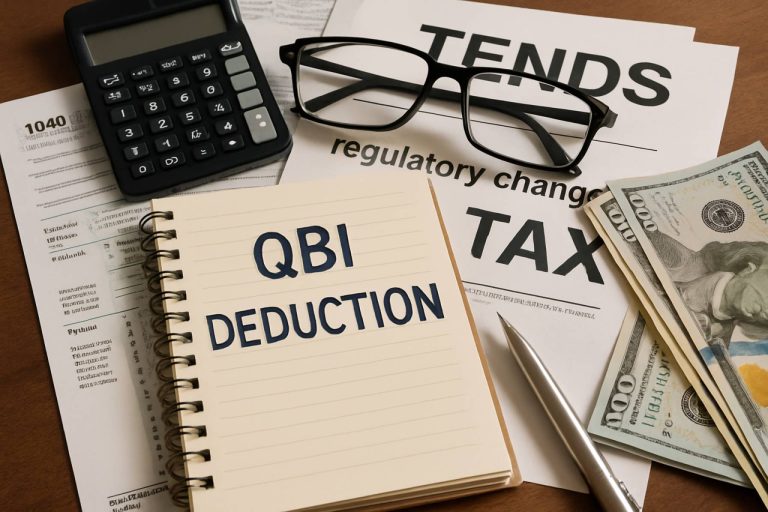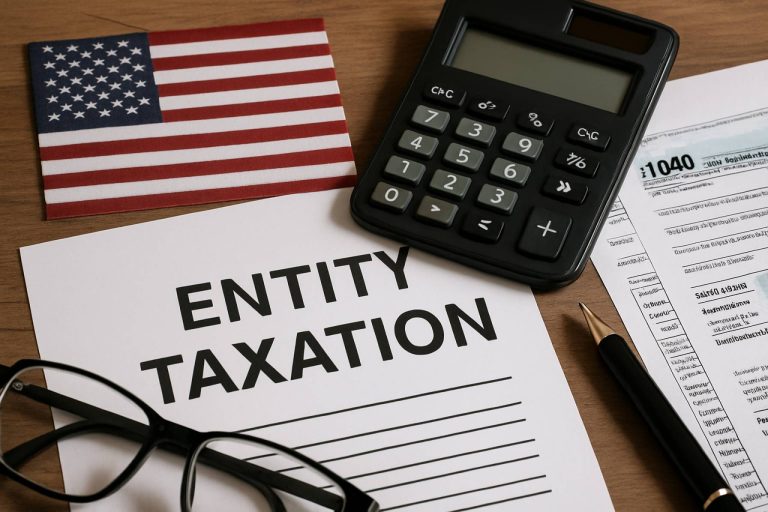
Table of Contents
- Executive Summary: Bosnia and Herzegovina’s Investment Climate in 2025
- Key Economic Indicators and Market Statistics (Sources: bhas.gov.ba, cbbh.ba)
- Strategic Growth Sectors: Where the Biggest Opportunities Lie
- Legal and Regulatory Framework for Foreign Investors (Sources: fipa.gov.ba, pravosudje.ba)
- Taxation and Incentives: What Investors Need to Know (Sources: uino.gov.ba, mft.gov.ba)
- Compliance, Permits, and Business Registration Procedures (Sources: apif.net, fipa.gov.ba)
- Risks, Barriers, and How to Navigate Them
- Case Studies: Recent Major Investments and Success Stories (Sources: fipa.gov.ba, relevant company websites)
- ESG, Sustainability, and Corporate Responsibility Requirements
- Future Outlook: Projections for Bosnia and Herzegovina Through 2030
- Sources & References
Executive Summary: Bosnia and Herzegovina’s Investment Climate in 2025
Bosnia and Herzegovina (BiH) in 2025 offers a complex but evolving investment climate, shaped by ongoing regulatory reforms, regional integration efforts, and continued political challenges. As a potential candidate for European Union (EU) accession, BiH has undertaken steps to align its regulatory framework with EU standards, particularly in areas such as public procurement, anti-corruption, and the financial sector. In 2023, BiH was granted candidate status by the European Council, intensifying reform momentum and opening new avenues for foreign direct investment (FDI) Directorate for European Integration of Bosnia and Herzegovina.
The legal environment for investors is characterized by a decentralized structure comprising the Federation of Bosnia and Herzegovina, the Republika Srpska, and the Brčko District. Each entity has its own laws on foreign investment, company registration, and taxation, leading to administrative complexity but also competitive incentives. Foreign investors are granted national treatment, and there are no general restrictions on foreign ownership, though sector-specific limitations may apply in areas such as defense and natural resources Foreign Investment Promotion Agency of Bosnia and Herzegovina.
Key compliance requirements for investors include registration with entity-level courts, tax authorities, and sectoral regulators. The implementation of anti-money laundering (AML) and anti-corruption legislation has been strengthened, with the 2023 Law on Prevention of Money Laundering and Financing of Terrorist Activities aligning local regulations more closely to EU norms Agency for the Prevention of Money Laundering and Terrorist Financing of Bosnia and Herzegovina. Furthermore, BiH has established a network of bilateral investment treaties (BITs) and is a member of the International Centre for Settlement of Investment Disputes (ICSID), offering additional legal protections for foreign capital.
Statistically, FDI inflow into BiH reached approximately EUR 850 million in 2023, with manufacturing, energy, and banking as leading sectors. The country’s GDP is projected to grow by around 2.8% in 2025, supported by export-oriented industries and infrastructure development Central Bank of Bosnia and Herzegovina.
Despite positive trends, investors must navigate slow administrative procedures, fragmented governance, and ongoing judicial reform challenges. However, commitments to the EU accession path, continued regulatory improvements, and proximity to European markets suggest a cautiously optimistic outlook for investment growth in BiH through 2025 and beyond.
Key Economic Indicators and Market Statistics (Sources: bhas.gov.ba, cbbh.ba)
Bosnia and Herzegovina (BiH) presents a complex investment environment, shaped by its post-conflict economic transition, ongoing structural reforms, and integration efforts with European markets. Recent data indicate gradual economic recovery with moderate growth prospects, despite persistent challenges related to regulatory complexity and political fragmentation.
- Gross Domestic Product (GDP): According to the latest available data from the Agency for Statistics of Bosnia and Herzegovina, the country’s GDP in 2023 reached approximately BAM 43.6 billion (circa EUR 22.3 billion), marking a real growth rate of 2.7%. Projections for 2025 suggest GDP growth rates between 2.5% and 3.0%, aligned with regional trends and supported by consumption, remittances, and modest export performance.
- Inflation and Monetary Policy: Annual inflation rates, reported by the Central Bank of Bosnia and Herzegovina, peaked in 2022 but stabilized at around 4.1% in 2023. The currency board arrangement remains in place, pegging the Convertible Mark (BAM) to the Euro, which continues to anchor monetary stability and investor confidence.
- Foreign Direct Investment (FDI): FDI inflows rebounded in 2023, reaching BAM 1.5 billion (approx. EUR 765 million), with the manufacturing, banking, and real estate sectors attracting the most capital. Key investors originate from Austria, Slovenia, Russia, and Turkey. The Agency for Statistics of Bosnia and Herzegovina reports that FDI as a share of GDP remains moderate, with the outlook for 2025 contingent on continued reforms, infrastructure development, and EU accession dynamics.
- Employment and Labor Market: Official figures indicate the unemployment rate stood at approximately 15.7% in 2023, with youth unemployment significantly higher. The labor market is characterized by persistent skills mismatches and a sizeable informal sector, though gradual improvements are expected as economic activity recovers and labor mobility increases.
- Trade and External Accounts: BiH maintains a structural trade deficit, with merchandise exports totaling BAM 15.1 billion and imports BAM 25.7 billion in 2023. The EU remains the principal trading partner, accounting for over 70% of both exports and imports. Trade integration is furthered through Stabilization and Association Agreement mechanisms.
Looking forward, Bosnia and Herzegovina’s investment climate in 2025 will depend on the pace of legal harmonization, infrastructure investments, and alignment with EU standards. Despite macroeconomic resilience, investors should monitor regulatory reforms and political developments closely.
Strategic Growth Sectors: Where the Biggest Opportunities Lie
Bosnia and Herzegovina (BiH) presents a compelling landscape for investors in 2025, with strategic growth sectors emerging amidst regulatory reforms and gradual economic modernization. The country’s investment climate is shaped by its aspirations toward EU integration and ongoing alignment with international standards, driving opportunities in select industries.
- Energy and Renewables: BiH possesses significant hydropower potential, accounting for nearly 40% of its electricity generation, with additional untapped resources in wind and solar. The government has prioritized energy diversification and efficiency, enacting the Law on Energy and Regulation of Energy Activities in the Federation of BiH and similar frameworks in Republika Srpska. The 2025-2027 national strategy emphasizes investment incentives for renewables, grid modernization, and cross-border energy trade, aligning with EU Green Deal objectives (Directorate for European Integration).
- Manufacturing and Export Industries: With competitive labor costs and access to both EU and CEFTA markets, BiH’s light manufacturing sector—particularly automotive components, metal processing, and textiles—continues to attract FDI. In 2023, manufacturing contributed over 22% to BiH’s GDP, and industrial output is projected to grow by 3.5% annually through 2027 (Agency for Statistics of Bosnia and Herzegovina). Government-backed industrial zones offer streamlined permitting and tax incentives under the Law on Incentives for Development of Small and Medium Enterprises.
- Tourism and Hospitality: BiH’s natural beauty and cultural heritage have driven double-digit growth in tourism arrivals, surpassing 1.7 million foreign visitors in 2023. The government’s Tourism Development Strategy 2023-2027 seeks to boost infrastructure, digitalization, and sustainable tourism, with investment opportunities in eco-resorts, health tourism, and adventure travel (Federal Ministry of Environment and Tourism).
- Information Technology and Startups: The IT sector is expanding rapidly, supported by a young, skilled workforce and government-led digital transformation policies. The Ministry of Scientific and Technological Development, Higher Education and Information Society of Republika Srpska and Canton-level initiatives provide grants and incubation support, with IT exports rising by 15% annually.
Investors must navigate a complex legal environment, with both entity- and state-level regulations, but recent reforms have improved business registration, licensing, and foreign ownership protections. Continued alignment with EU acquis and anti-corruption efforts are expected to enhance predictability and investor confidence through 2025 and beyond (Ministry of Foreign Affairs of Bosnia and Herzegovina).
Legal and Regulatory Framework for Foreign Investors (Sources: fipa.gov.ba, pravosudje.ba)
Bosnia and Herzegovina (BiH) maintains a legal and regulatory environment that is generally open to foreign investors, underpinned by national laws and international agreements. The Law on the Policy of Foreign Direct Investment, adopted in 1998 and subsequently amended, guarantees equal rights for foreign and domestic investors, including the right to free transfer of profits abroad, protection against nationalization except in the public interest (with compensation), and access to courts and arbitration in case of disputes. There are no limitations on foreign ownership, except in sectors concerning defense, media, and natural resources, which may be subject to additional scrutiny or licensing requirements (Foreign Investment Promotion Agency of Bosnia and Herzegovina).
BiH’s complex administrative structure—comprising the state, two entities (the Federation of Bosnia and Herzegovina and Republika Srpska), and the Brčko District—means that investors must navigate a multi-layered legal system. Each entity has its own company, tax, labor, and real estate laws, though harmonization efforts continue. Registration processes have been streamlined in recent years, reducing the average company registration time to less than two weeks in most jurisdictions. Foreign investors can establish wholly owned enterprises, branch offices, and representative offices, and are entitled to the same property rights as locals, including the acquisition of real estate for business purposes (Foreign Investment Promotion Agency of Bosnia and Herzegovina).
Compliance requirements in BiH include registration with the competent court, tax authorities, and relevant sectoral regulators. The judiciary’s efficiency is still a concern, with commercial disputes sometimes facing lengthy resolution times. However, the introduction of electronic case management and ongoing judicial reform have shown incremental improvements in transparency and processing times (High Judicial and Prosecutorial Council of Bosnia and Herzegovina).
Statistically, foreign direct investment inflows have shown modest but resilient growth, with net FDI reaching over EUR 500 million in 2023, and the outlook for 2025-2027 remains cautiously optimistic, contingent on ongoing reforms and EU accession progress. Continued harmonization of laws, digitalization of administrative procedures, and efforts to strengthen the rule of law are expected to further improve the investment climate in coming years (Foreign Investment Promotion Agency of Bosnia and Herzegovina).
Taxation and Incentives: What Investors Need to Know (Sources: uino.gov.ba, mft.gov.ba)
Investors considering Bosnia and Herzegovina (BiH) in 2025 will find a taxation framework characterized by relatively low rates, a developing incentive landscape, and ongoing alignment with European standards. The country operates under a decentralized system, with tax regulations administered at the state, entity (Federation of Bosnia and Herzegovina and Republika Srpska), and Brčko District levels. The principal taxes affecting investors include corporate income tax (CIT), value-added tax (VAT), and personal income tax, with certain sectoral and regional incentives available.
The standard corporate income tax rate is 10% across the country—one of the lowest in Europe. Taxable income includes all worldwide income for resident companies, while non-residents are taxed only on their Bosnia-sourced income. Loss carryforward is permitted for up to five years. The VAT rate stands at 17%, applicable to most goods and services, with certain exemptions for exports and specific activities. VAT registration is mandatory for businesses whose turnover exceeds BAM 50,000 annually (approximately EUR 25,500) (Indirect Taxation Authority of Bosnia and Herzegovina).
Tax compliance has seen improvements in digitalization, with e-filing and online payment systems increasingly available, but investors should be prepared for procedural complexity, particularly due to variations between the two entities. Regular reporting and payment deadlines apply, and transfer pricing rules require documentation for transactions between related parties, aligning with OECD standards. Double taxation treaties are in force with over 40 countries, reducing withholding tax rates on dividends, interest, and royalties in many cases (Ministry of Finance and Treasury of Bosnia and Herzegovina).
Incentives for investors in 2025 are largely determined by the entity-level governments. These include exemptions or reductions on corporate tax for profits reinvested in production assets, grants or subsidies for employment, and customs or VAT exemptions for certain imported equipment. The Federation of Bosnia and Herzegovina, for example, offers a five-year tax holiday for investments exceeding BAM 20 million (around EUR 10.2 million), provided the investment creates at least 50 new jobs. Free zones also offer favorable VAT and customs regimes for qualifying operations (Indirect Taxation Authority of Bosnia and Herzegovina).
The outlook for 2025 and the coming years anticipates further harmonization of tax and incentive policies with EU standards, particularly as BiH advances its EU accession process. Investors should monitor legislative changes, as reforms may impact compliance requirements and the availability of incentives. Proactive engagement with local tax authorities is recommended to ensure up-to-date compliance and maximize potential benefits.
Compliance, Permits, and Business Registration Procedures (Sources: apif.net, fipa.gov.ba)
Investing in Bosnia and Herzegovina (BiH) requires navigating a specific regulatory and compliance landscape shaped by the country’s administrative structure and EU alignment efforts. The process is governed by both state-level and entity-level legislation, with significant roles played by the Federation of Bosnia and Herzegovina and Republika Srpska, as well as the Brčko District. Investors must comply with local laws regarding company formation, permits, and sector-specific regulations.
To establish a business presence, foreign and domestic investors generally follow similar procedures. Registration of companies is centralized through entity-level business registration agencies. In the Federation of BiH, the process is managed by the Agency for Intermediary, IT and Financial Services (APIF), while in Republika Srpska, APIF also acts as the official registry. Procedures include reserving the company name, submitting founding documents, registering with the tax authorities, and enrolling employees in social insurance systems. As of 2025, recent reforms have reduced procedural steps and the timeline for company registration, with most registrations taking 5-10 working days, depending on the complexity of the business structure.
Permits are often sector-specific. Construction, environmental, and operating permits are issued by municipal or cantonal authorities, depending on business location and activity. For example, companies involved in manufacturing, infrastructure, or extractive industries must secure environmental impact assessments and relevant sectoral licenses prior to commencing operations. The process is outlined in detail by the Foreign Investment Promotion Agency of Bosnia and Herzegovina (FIPA), which provides guidance and updated checklists for foreign investors.
Compliance obligations extend to anti-money laundering (AML), tax registration, and regular financial reporting. All businesses must register for value-added tax (VAT) if their annual turnover exceeds the statutory threshold and are required to submit annual financial statements. BiH has made progress integrating its regulatory framework with EU standards, particularly concerning transparency and corporate governance.
- Company registration typically takes 5-10 working days in both entities.
- As of 2025, digitalization initiatives have simplified document submission and permit applications.
- All foreign investments are subject to notification, but there are no general restrictions on foreign ownership, except in defense, media, and certain land ownership cases.
- Ongoing reforms are expected to further streamline compliance and reduce administrative burdens in the next few years.
Investors are encouraged to consult with FIPA and APIF for up-to-date guidance on sector-specific permits and compliance obligations, as the legislative framework is subject to continuing harmonization with EU directives.
Risks, Barriers, and How to Navigate Them
Investing in Bosnia and Herzegovina (BiH) in 2025 presents a dynamic set of risks and barriers shaped by the country’s complex political landscape, regulatory environment, and evolving legal frameworks. Understanding these challenges—and strategies for navigating them—is essential for prospective investors.
- Political and Administrative Complexity: BiH’s unique constitutional arrangement, established by the Dayton Peace Agreement, divides the country into two entities (the Federation of BiH and Republika Srpska) plus the Brčko District. Each has its own government, legal system, and regulatory authorities, resulting in overlapping jurisdictions and regulatory fragmentation. This complexity can slow decision-making, complicate business registration, and create uncertainty regarding applicable laws and procedures (Directorate for European Integration of Bosnia and Herzegovina).
- Legal and Regulatory Risks: The investment climate is governed by national-level laws such as the Foreign Investment Law and entity-level regulations. While these laws generally guarantee national treatment for foreign investors and permit full foreign ownership, inconsistent enforcement and frequent legislative changes can pose compliance challenges. Investors must carefully track updates and harmonization efforts, especially those aligning local laws with EU standards (Ministry of Justice of Bosnia and Herzegovina).
- Judicial Efficiency and Corruption: The judiciary in BiH is often perceived as slow and subject to political influence, which can affect contract enforcement and dispute resolution. Corruption remains a concern, particularly in public procurement and administrative processes, as noted by local anti-corruption authorities and international monitoring bodies (Agency for Prevention of Corruption and Coordination of the Fight against Corruption). Investors are advised to conduct thorough due diligence and seek local legal expertise.
- Compliance and Licensing: Business licensing and permitting processes differ between the Federation, Republika Srpska, and Brčko District, sometimes requiring interaction with multiple agencies. Investors should familiarize themselves with entity-specific requirements and leverage local professional service providers to streamline compliance (Government of the Federation of Bosnia and Herzegovina, Government of Republika Srpska).
- Foreign Exchange and Repatriation: BiH maintains a currency board arrangement with the euro, ensuring relative currency stability. There are no legal restrictions on the repatriation of profits, but investors should remain alert to potential administrative delays and reporting rules enforced by the Central Bank (Central Bank of Bosnia and Herzegovina).
Outlook and Navigation Strategies (2025 & Beyond): Despite these barriers, BiH continues gradual reforms aimed at EU accession and regulatory harmonization. Investors should monitor progress in the areas of rule of law, anti-corruption measures, and administrative streamlining. Engaging reputable local counsel, maintaining robust compliance programs, and establishing relationships with both state and entity authorities are prudent ways to mitigate risks and capitalize on emerging opportunities in BiH.
Case Studies: Recent Major Investments and Success Stories (Sources: fipa.gov.ba, relevant company websites)
Bosnia and Herzegovina (BiH) has attracted several notable foreign direct investments (FDI) in recent years, reflecting both the country’s growing appeal and the government’s efforts to streamline procedures for international investors. The Foreign Investment Promotion Agency of Bosnia and Herzegovina (FIPA) highlights that FDI inflows reached over €600 million in 2023, with projections indicating continued growth through 2025, particularly in manufacturing, energy, and ICT sectors.
A prominent case is the expansion of the German automotive supplier Prettl, which opened a major wiring systems facility in Živinice in 2023. This investment, exceeding €10 million, created over 300 jobs and leveraged BiH’s skilled workforce and access to EU markets. Similarly, Messer Group, a leading industrial gases producer, continued to expand its BiH operations with new production lines and logistics hubs, positioning the country as a regional supply center.
In the renewable energy sector, the 2024 commissioning of the 50 MW “Jelovača” wind farm by Imepower and partners marked a significant milestone for green investment in BiH. The project, supported by favorable regulatory incentives and streamlined permitting, demonstrates the government’s commitment to the EU Green Agenda and the attraction of sustainable investment.
ICT and business process outsourcing have also seen recent success. Authority Partners, a US-based software company, expanded its Sarajevo development center in 2024, citing the country’s competitive talent pool and improving digital infrastructure. The company’s growth reflects a broader trend of international firms capitalizing on BiH’s cost-effective and skilled workforce.
Several of these investments have benefited from legal reforms enacted in 2023 and 2024, including the Law on Foreign Direct Investment and the harmonization of sectoral regulations to EU standards. These changes have reduced administrative barriers, improved investor protection, and enhanced compliance with anti-money laundering requirements, as highlighted by FIPA.
Looking forward to 2025 and beyond, investors are closely monitoring continued reforms, infrastructure projects—such as the Corridor Vc highway—and political stability as key determinants for future investment. The success stories to date underscore the potential for further FDI growth as Bosnia and Herzegovina continues its path toward EU integration and regulatory modernization.
ESG, Sustainability, and Corporate Responsibility Requirements
Environmental, Social, and Governance (ESG) principles and broader sustainability requirements are increasingly relevant for investors in Bosnia and Herzegovina (BiH), particularly in the context of the country’s aspiration to align with European Union (EU) standards. In recent years, BiH has taken steps to harmonize its legal and regulatory frameworks with EU directives, with measurable implications for corporate responsibility and ESG compliance.
The legal framework for ESG and sustainability in BiH is primarily driven by environmental and labor legislation at both the state and entity levels. The Federation of Bosnia and Herzegovina Law on Environmental Protection and the Republika Srpska Law on Environmental Protection require companies to obtain environmental permits, conduct environmental impact assessments (EIAs), and implement measures to prevent or mitigate adverse environmental effects. These requirements are increasingly enforced, especially for projects in energy, infrastructure, and extractive industries. Additionally, Bosnia and Herzegovina is a Party to the Aarhus Convention, ensuring public participation and transparency in environmental matters (Ministry of Foreign Trade and Economic Relations of Bosnia and Herzegovina).
On the social and governance fronts, the State Law on Companies and entity-level labor laws set out employers’ obligations regarding workplace safety, anti-discrimination, and employee rights. In 2024–2025, new amendments have been under discussion to further align labor standards and anti-corruption measures with EU acquis, potentially raising compliance requirements for investors in coming years (Ministry of Justice of Bosnia and Herzegovina).
While ESG reporting is not yet mandatory for most companies, the Securities Commission of the Federation of Bosnia and Herzegovina and Republika Srpska Securities Commission have issued guidance encouraging listed companies to disclose material non-financial information. This trend is expected to accelerate, especially for companies seeking foreign investment or cross-border listings.
- BiH ranks 64th out of 180 on the 2023 Corruption Perceptions Index, indicating ongoing governance challenges (Transparency International).
- About 50% of the country’s energy comes from coal, but the government has committed to increase renewable energy use under the Energy Community Treaty (Energy Community).
Looking ahead to 2025 and beyond, ESG and sustainability compliance will become increasingly central for investors in BiH. Alignment with EU standards, closer scrutiny of environmental impacts, and the gradual introduction of ESG reporting obligations are expected. Investors should monitor evolving laws and proactively adopt best practices in corporate responsibility to ensure long-term success and regulatory compliance.
Future Outlook: Projections for Bosnia and Herzegovina Through 2030
Bosnia and Herzegovina (BiH) is at a pivotal stage in its economic and investment trajectory as it approaches 2025 and looks ahead to 2030. The country’s strategic location in Southeast Europe, ongoing economic reforms, and gradual alignment with European Union (EU) standards are shaping its investment climate. In 2023, BiH’s GDP grew by approximately 2.5%, with forecasts suggesting moderate but steady growth through the decade, provided reforms continue and regional stability persists (Central Bank of Bosnia and Herzegovina).
Key sectors attracting foreign direct investment (FDI) include manufacturing, energy (notably renewables), tourism, and information technology. The country’s FDI inflows totaled €547 million in 2023, reflecting a recovery from pandemic-related downturns and a growing investor appetite for BiH’s resources and labor market (Foreign Investment Promotion Agency of Bosnia and Herzegovina). With the global push for energy transition, BiH’s significant hydropower and solar potential are expected to draw increased capital, especially as new incentives and public-private partnership (PPP) frameworks are implemented.
Legally, BiH continues to harmonize its investment laws and business practices with EU standards. The Law on Foreign Direct Investment provides equal treatment for foreign and domestic investors, guarantees against expropriation, and enables free transfer of profits abroad. However, investors must navigate a complex regulatory environment, as competencies are divided among the state, two entities (the Federation of BiH and Republika Srpska), and the Brčko District. This decentralized system can lead to variations in tax rates, incentives, and compliance requirements, emphasizing the importance of thorough due diligence and local legal counsel (Bar Association of the Federation of Bosnia and Herzegovina).
BiH’s EU candidate status, granted in December 2022, sets a clear direction for reforms in the legal, fiscal, and anti-corruption domains. The country is expected to accelerate its efforts to strengthen the rule of law, enhance the transparency of public tenders, and streamline business registration processes by 2030 (Delegation of the European Union to Bosnia and Herzegovina). Compliance with anti-money laundering and anti-corruption measures is monitored by dedicated agencies and will remain a focus as BiH seeks to improve its ranking on international indices.
Looking forward, the outlook for investing in Bosnia and Herzegovina is cautiously optimistic. Success hinges on the pace of institutional reforms, infrastructure upgrades, and integration with broader European economic networks. Investors are advised to closely monitor legislative developments, sectoral incentive programs, and regional cooperation initiatives that are likely to shape the investment environment up to 2030.
Sources & References
- Directorate for European Integration of Bosnia and Herzegovina
- Foreign Investment Promotion Agency of Bosnia and Herzegovina
- Federal Ministry of Environment and Tourism
- High Judicial and Prosecutorial Council of Bosnia and Herzegovina
- Indirect Taxation Authority of Bosnia and Herzegovina
- Prettl
- Messer Group
- Authority Partners
- Securities Commission of the Federation of Bosnia and Herzegovina
- Delegation of the European Union to Bosnia and Herzegovina



